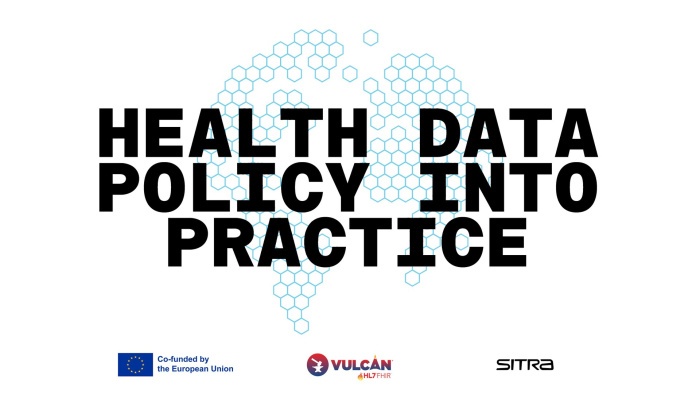How Can Health Data Be Linked for Research?
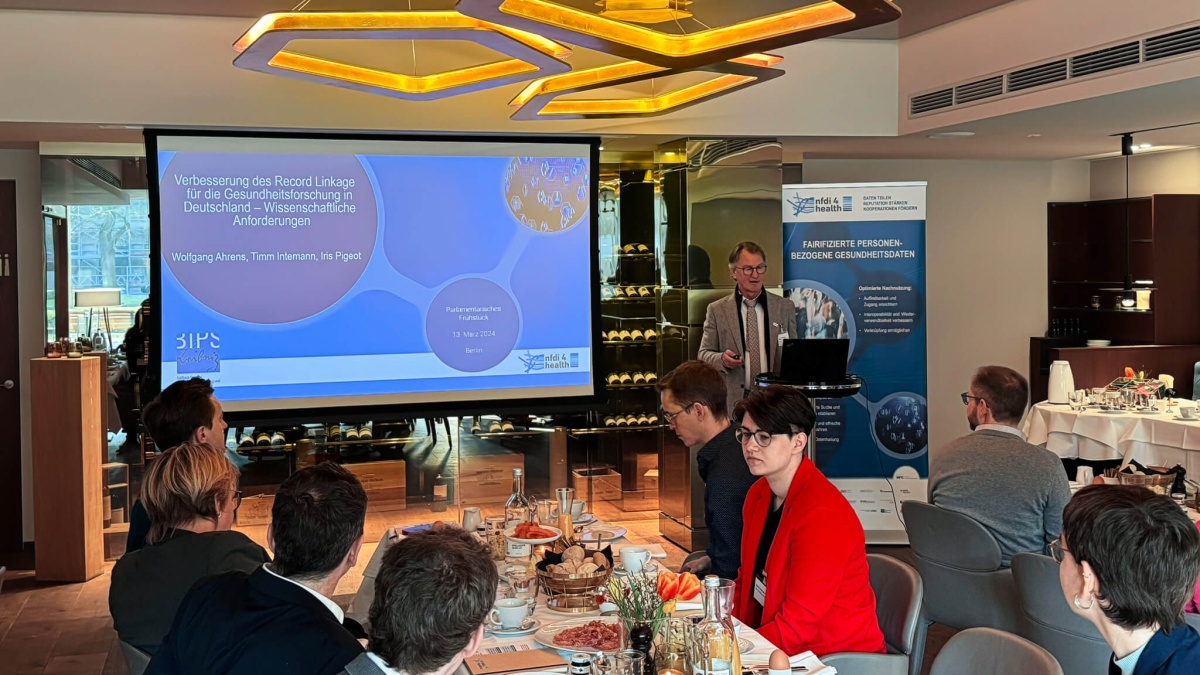
© TMF e.V.
On March 13, 2024, the TMF – Technology and Methodology Platform for Networked Medical Research – and NFDI4Health jointly hosted a parliamentary breakfast in Berlin on the topic of record linkage. Representatives from politics engaged in discussions with experts from health and research about the significance of record linkage – the linking of health datasets – for research and improved healthcare in Germany.
The event began with opening speeches from Sebastian C. Semler from the TMF and Prof. Dr. Wolfgang Ahrens from the Leibniz Institute for Prevention Research and Epidemiology – BIPS.
Sebastian C. Semler highlighted the opportunities that the new Health Data Utilization Act offers for research. The law represents significant progress, but it still leaves some questions unanswered.
Following that, Prof. Dr. Wolfgang Ahrens presented the White Paper on Record Linkage, developed by NFDI4Health, together with other experts, including those from the Medical Informatics Initiative, the University Medicine Network, and the TMF. The White Paper outlines the potential of record linkage to answer unresolved research questions, illustrates current technical and legal barriers, and identifies solutions from other countries. It also includes specific recommendations for lawmakers, summarized concisely in a one-pager.
Only by linking different data sources can scientific questions be answered that, due to the limited scope of variables in a single data source, could not be addressed with just one source.
In the subsequent discussion, it became clear that the proposal to create a unique identifier to allow datasets from the same person to be clearly linked in the future is generally welcomed. The issue of the unique identifier is closely tied to the question of an electronic ID, as highlighted by Bundestag member Matthias Mieves. Currently, Germany has various approaches and several parallel-developed electronic identities. The goal of the federal government is to unify these.
In addition to regulatory issues, participants also emphasized the importance of public awareness. The population knows little about the topic of secondary use of health data. Measures to improve digital health literacy, specifically data literacy, are urgently needed. This should ideally happen in a coordinated effort. The TMF will collaborate with patient organizations and other groups on this matter.
It has become clear that record linkage will remain a significant challenge in Germany. The TMF, BIPS, and NFDI4Health will continue to pursue the demands and goals in further discussions with politics and authorities until a hole is made in this thick barrier, which can then help research achieve new insights.
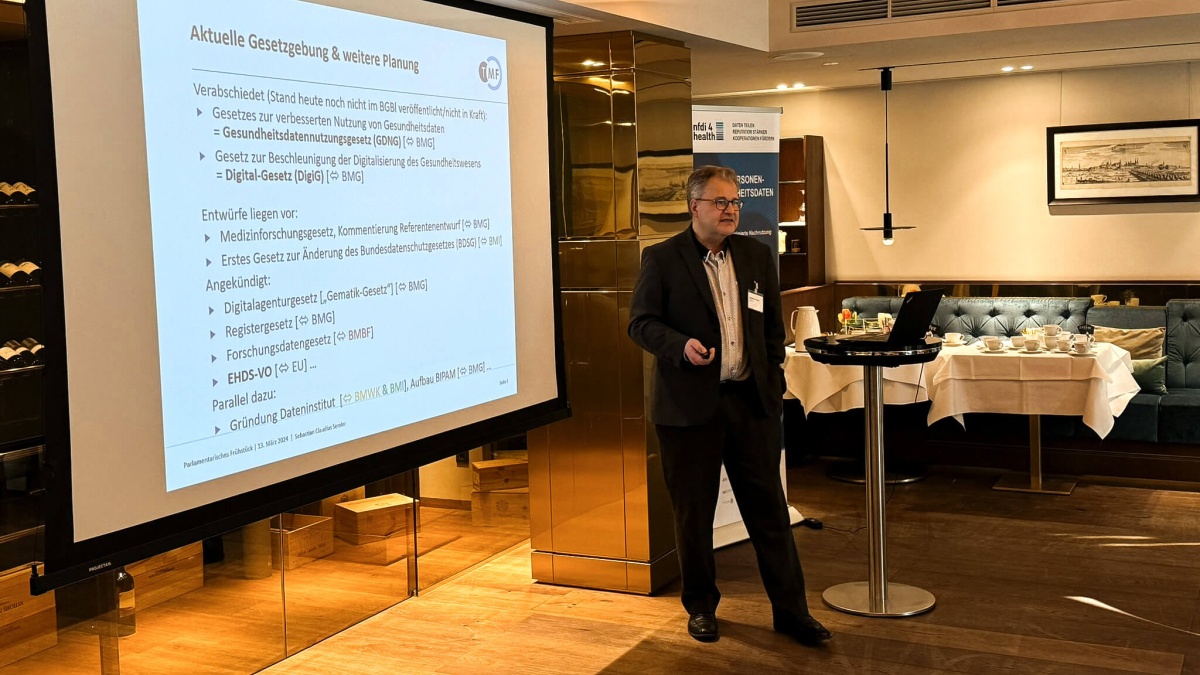
Sebastian C. Semler. © TMF e.V.

F.l.t.r.: Prof. Dr. Sylvia Thun, Marcel Weigand, Matthias Mieves and Prof. Dr. Wolfgang Ahrens. © TMF e.V.
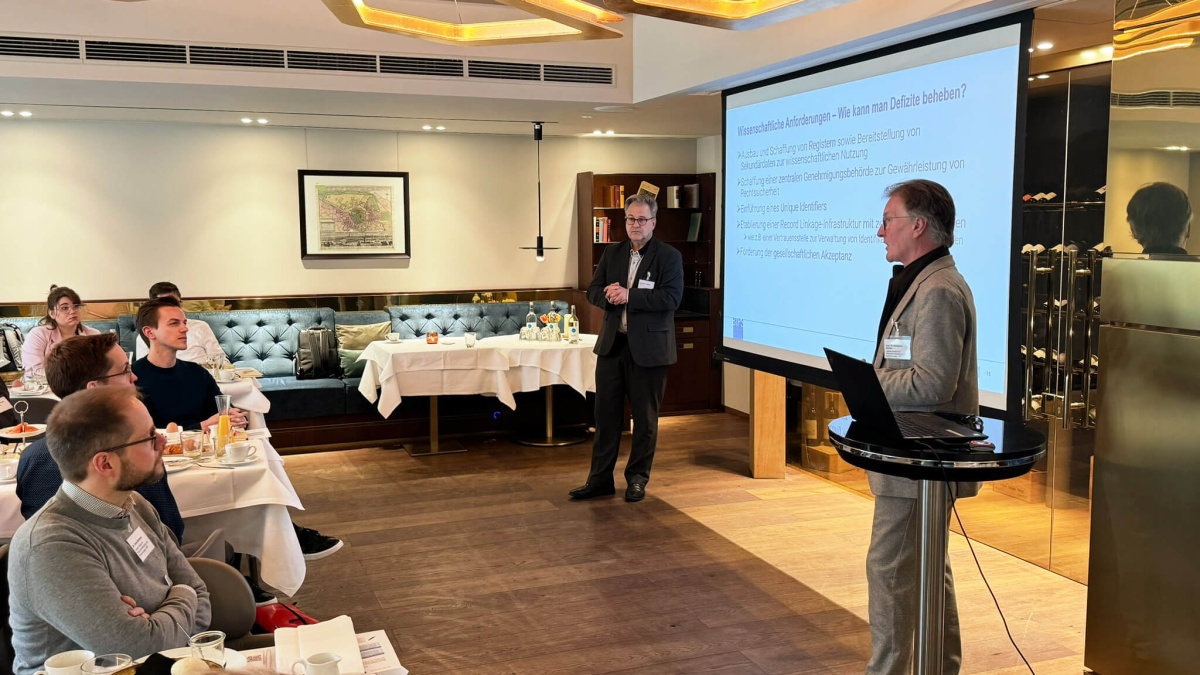
Sebastian C. Semler and Prof. Dr. Wolfgang Ahrens. © TMF e.V.

The participants of the parliamentary breakfast. © TMF e.V.
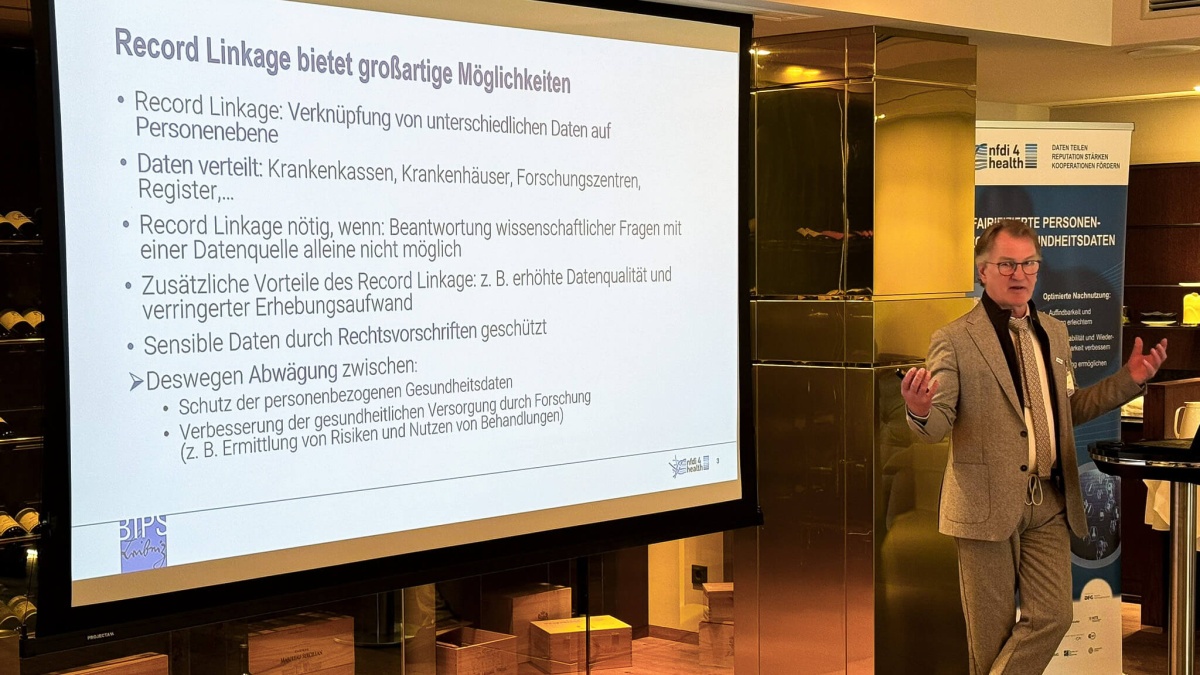
Prof. Dr. Wolfgang Ahrens. © TMF e.V.


